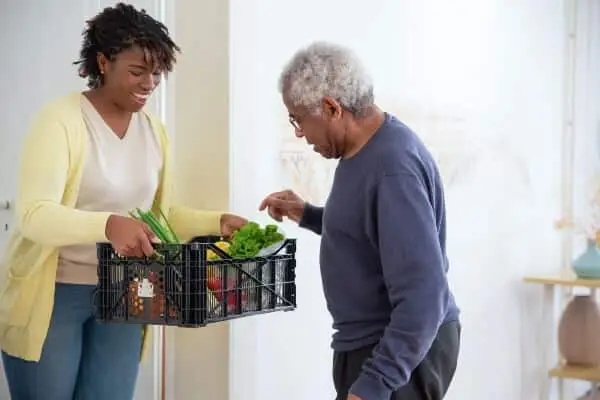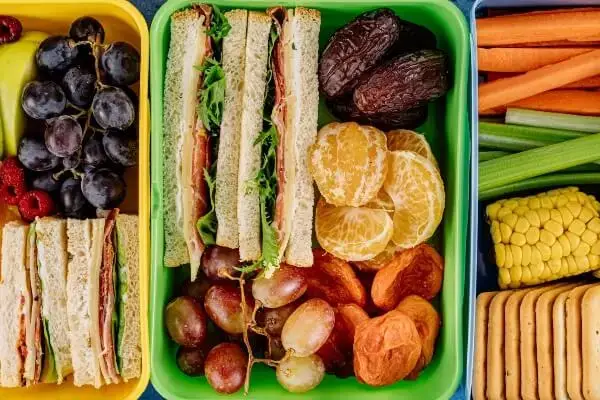Food in Care Homes – How to Keep Residents Healthy
Pexels Licence – Kampus Production
Your nutrition determines your living standards and lifespan, and it only increases in importance as you age. When caring for vulnerable people, you must understand and cater to their food and drink requirements to keep them happy and healthy. However, doing so can be challenging. Read our expert guide explaining how to prepare the ideal food in care homes whilst avoiding the critical risks.
Your Duty to Supply Quality Food
Care home residents can rarely cook for themselves, making providing quality food essential. Malnutrition is common among elderly people, so you must supply the correct nutritional value in every meal or snack you offer to prevent their diet from affecting their health.
You should also carefully manage your food hygiene as your residents have weakened immune systems and could suffer immensely from foodborne diseases. Avoid cross-contamination and spoilage at all costs.
Diet and Health’s Relationship
Our diets dramatically impact our overall health, especially as we age. Here are some of the common dietary issues that elderly people often suffer from:
Increased Risk of Disease
As we age, our risk of significant health conditions like heart disease and cancer increases, meaning eating a healthy diet that supports our body is vital.
Malnutrition
Often, elderly people have low appetites as they may have partially lost the ability to smell or taste. What’s more, we absorb fewer nutrients from our food as we age, which when combined with eating less food, risks malnutrition and health complications.
Weight Gain
As people age, their basal metabolic rate and activity level decrease, lowering our required daily calorie intake. Although the UK’s recommended daily guidelines do not change with age, adjusting diets prevents weight gain, lowering the risk of heart disease and pressure on the joints.
Type 2 Diabetes
Weight gain can also lead to Type 2 Diabetes, a leading cause of kidney failure.
Vitamin Deficiencies
As elderly residents do not eat as much, cannot absorb as many nutrients and spend less time outside, they often suffer from vitamin deficiencies. A daily multivitamin supplement can support them.
How You Can Improve Your Resident’s Food Intake
Optimising your meals and snacks helps your residents eat well. You can encourage them to eat more and deliver more nutritional value from their plates by following these tips:
Control Portions
It is easier to eat little and often than rare large portions, which can appear daunting on a plate, resulting in food waste and malnutrition.
Try offering five or six portions of snacks throughout the day and be flexible with your meal times so residents can eat when ready. Evenly space them throughout the day to give residents time to digest their food.
Snacks
Small snacks manage portions throughout the day. Offer them three times a day: mid-morning, mid-afternoon and mid-evening, and choose snacks with different consistencies to make them easier to eat.
You can try snacks like:
- Cakes
- Scones
- Sandwiches
- Pies
- Cheese and crackers
- Fruit
- Nuts
- Biscuits
- Crisps
- Creamy desserts like mousse, trifle or tiramisu
- Yoghurt
Finger Foods
If your residents suffer from illnesses like dementia, they may struggle with cutlery. Finger foods help them eat independently.
You could offer:
- Sandwiches
- Crisps
- Chips
- Sausage rolls
- Samosas
- Pies
- Ice cream cones
Eating Locations
Ask your resident where they like to eat. Do they enjoy dining with others so they can have conversations, or do they prefer dining alone? Making their dining area comfortable will encourage them to eat well.
Always keep the dining location clear so residents can concentrate on their meals. Background music is an excellent addition.
Stimulating Appetite
Making your residents hungry is vital. You can give them some fresh air and exercise or a tipple of sherry to build up their appetite before meals.
Working with Dementia Patients
The confusion caused by dementia can complicate meals, so identifying the best processes is essential. Offer larger portions and snacks when they are alert, as you may not have another opportunity to feed them.
If their taste is affected, your food may taste bland and unappealing so add extra seasoning and flavourings to their portions. It will encourage them to eat If their sight is poor, coloured cutlery can help with clarity.
Working with Different Residents
All your residents will have different preferences and needs. Record them carefully and ensure that staff are aware. Then you can colour-coordinate cutlery and plates to address these requirements.
Nutritious Drinks
Your residents can also get valuable nutrition from their drinks. We recommend that you offer:
- Fortified Tea – with full-fat milk or cream
- Fortified Coffee – with full-fat milk or cream
- Fruit Juice – preferably fresh
- Squash – avoid no added sugar options
- Hot Chocolate – made with full-fat milk
- Milkshakes – packed with fruit and full-fat milk
- Smoothies – use a variety of fruits and add yoghurt
You can also add supplements to your drinks for additional energy and nutrients.
Food Fortification
With their increased need for nutrition but decreased appetite, residents will benefit from food fortification, especially if they are malnourished or underweight. Choosing high-energy and high-protein foods for meals and snacks provides the same nutrition from a smaller portion.
However, be aware that it can increase your residents’ cholesterol levels, so only fortify their food for short periods to prevent excess cholesterol gain.
- Milk powder to milk, cream and dairy-based foods.
- Oil to sauces, mashed potatoes, pasta and rice
- Butter to vegetables, mashed potatoes, fish, bread, sauces and scrambled eggs
- Cheese to mashed potatoes, shepherd pie, pasta, and soups
- Sugar to cereal and hot drinks
- Full-fat yoghurt to fruit and cereal
- Complan or Meritene to drinks, sauces, cereal, porridge and batters
You can also try adapting your recipes and swapping ingredients for higher-value items to deliver more calories or protein.
Get a Food Preparation Qualification Today
If you would like to learn more about food in care homes or develop the skills to care effectively, you can take a Caredemy online course. We have dozens of CPD-Accredited courses available, covering several non-clinical topics, such as food handling and social care. Take a course written by Environmental Health Officers to learn about food hygiene inspections and the necessary precautions checklist.
What’s more, many of them are free, giving you access to superior online training at no cost. You can take them individually or in groups.
For more information about our courses, speak to our friendly team today. They are happy to answer your questions and help you enrol online.




